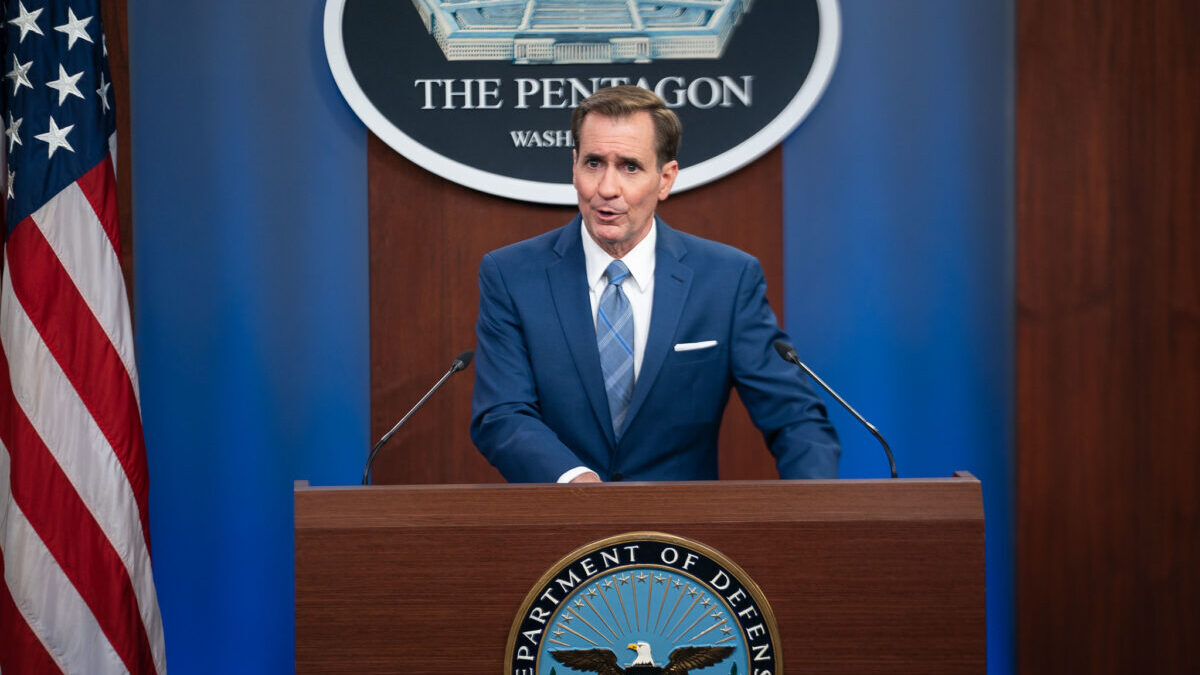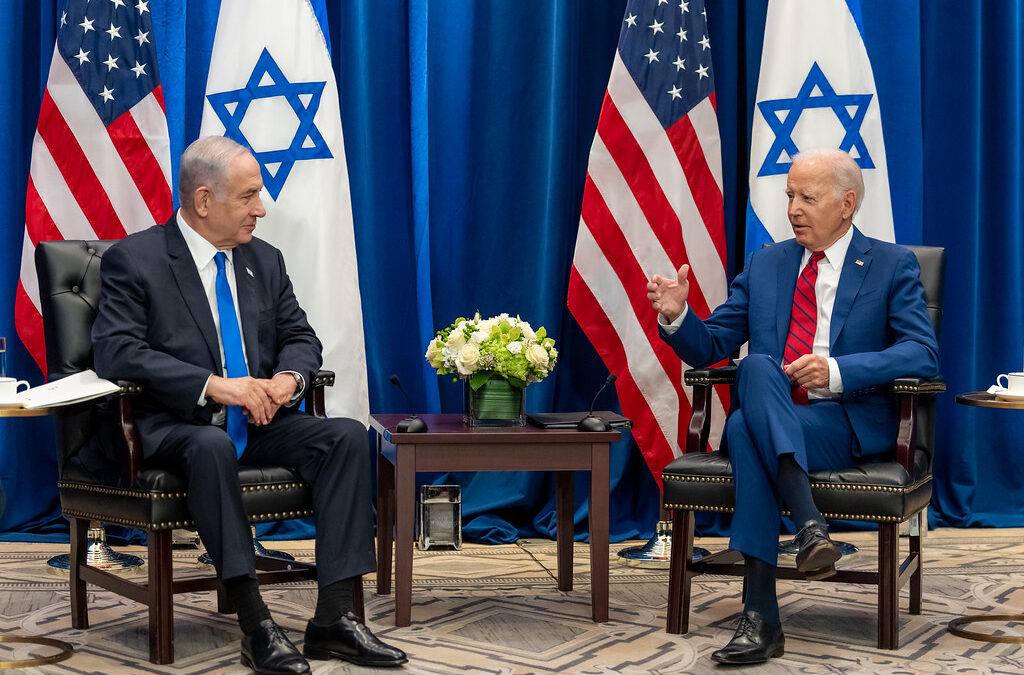
A day after his dispiriting press conference with Vladimir Putin, President Trump finally managed to say the right thing about Russian meddling in the 2016 election. While standing next to Putin on Monday, Trump gave a very unclear answer on Russian interference, saying he trusted his intelligence services, but that Putin strongly denies the allegations. Tuesday, he clearly said that the allegations are true, but that they had no effect on the election.
Like Trump, all of us should accept the fact that Russia attempted to affect the outcome of the 2016 election through cyber attacks launched against the United States. The question now is how should the United States respond to this attack, and what is the best way to degrade Russia’s ability to meddle in future elections. Unfortunately, for now these are not the questions being asked, in large part because as long as suggestions of Trump campaign collusion linger, we can have no idea how successful Russia’s operation against us was.
Regarding Russia’s attack on our elections, there is a spectrum of possibilities that range from catastrophic to “meh.” The catastrophic contingency is that Trump is a foreign agent under the power of Russia, who directly benefitted from shared stolen information. If this is true, he must be impeached and arrested, and Russia must be severely punished.
The “meh” contingency is that Russia ran some informational propaganda campaigns that flew under the radar of U.S. intelligence (or didn’t rise to a public response) and it had little if any effect on the outcome of the election. If this is true, the best response may be to basically ignore it publicly while shoring up our cyber security and offensive cyber capabilities in quiet.
The problem — and this is mostly owing to sloppiness by the Trump campaign like the Trump Tower meeting and hiring Paul Manafort — is that now collusion and meddling are both part of the same investigation. Until such time as Special Counsel Robert Mueller either exonerates or accuses Trump or his associates, we are locked into this paradigm.
But for the sake of this article, let’s take the president’s position that there was no collusion, but there was cyber meddling. How should we respond?
Threat Assessment
According to the National Security Strategy of the United States, cyber war and safety has become an absolute top priority. But not all cyber threats are equal. The most threatening involve the ability to take out something like a power grid and potentially kill thousands of Americans. We know how we would handle this kind of attack. It would result in a massive response against the bad actors, likely including conventional forces. In this sense, there is a kind of mutually assured destruction at work if, say, Putin attacks Three Mile Island.
The U.S. military breaks down cyber threats into the following six categories: Hacktivism, Criminal, Insider, Espionage, Terrorism, and Warfare. In the case of Russian meddling there is some overlap here. For example, WikiLeaks are hacktivists. Did they team up with the Russian state? If so, was the result: espionage or warfare? The answer to that question has a great deal to do with what the appropriate response should be.
If the extent of Russian meddling was hacking the Democratic National Committee, buying Facebook ads, and propping up Twitter trolls, then — at least publicly — this should result in an eye-roll. This is everyday playground stuff in the intelligence world. Back in December 2016, President Barack Obama explained why calling Putin out didn’t make a lot of sense: “He denies it, so the idea that somehow public shaming is gonna be effective, I think doesn’t reads the thought process in Russia very well.”
Hitting Back
Assuming Russian interference was basic and run of the mill, it falls in a grey zone, which is to say that it is a prevarication that does not cause a military response. It may have technically been an act of war, but it is not a Casus Belli. The clear mission of the United Sates would then be to attempt to kill the cyber threat from the Russian government.
The U.S. military has a kill chain for just these kinds of threats. I runs as follows: Reconnaissance, Weaponization, Delivery, Exploitation, Installation, Command and Control, and, finally, Actions on the Objective. So, yes, the United States is more than likely capable of hitting back at Russian cyber threats with equally effective measures, but there is a major complication in this. Once employed, a cyber attack capability is also revealed.
Put simply, in a cyber fight, once you shoot your enemy, they get the bullet. When a cyber capability is employed, in addition to causing whatever damage is intended, two other things happen. First, your adversary becomes more adept at countering that cyber measure; second, they become capable of employing it against you. This is why traditional symbolic shows of strength, once a mainstay of foreign policy, are not terribly useful in cyber security.
The idea that we have to do something to push back against the Russians makes sense in a twentieth-century model, but today, our responses must be more measured because we may only get one bite at the apple, and we may also enhance our adversaries’ capabilities in doing so.
One option, and one the Trump administration has availed itself of although nobody seems to mention it, is to employ traditional hard power. This means arming Ukraine, pulling out of the Iran deal, and killing Russian soldiers on Syrian soil. These are real responses that have occurred, regardless of the news media claims that Trump is rolling over for Putin.
One thing we must never forget is that the principal goal of Russian interference is to sow discord in our society and undermine our government. When Chuck Schumer and Nancy Pelosi make baseless claims about the president being compromised, they are playing the cards that Putin puts in their hand. It’s a devastating mistake that they need to stop making, regardless of political ramifications.
Russia is running an informational campaign against the United States. This has always been true, but the Internet and especially the Internet of things, with its endless inputs into the system, make informational campaigns more powerful than they have ever been before. We are not helpless in this fight, but we won’t win it in a courtroom or at a press conference.
Our counter measures against Russia will take place out of eyeshot, which is frustrating, but necessary. In the meantime, the best position we can take is one of bemused lack of alarm. If the Mueller investigation shows Trump is a Russian agent, it will be time to freak out. But until that happens, a freakout does nothing but play into Putin’s hands.
Be patient, be thoughtful, and don’t do the Russians’ work for them.









